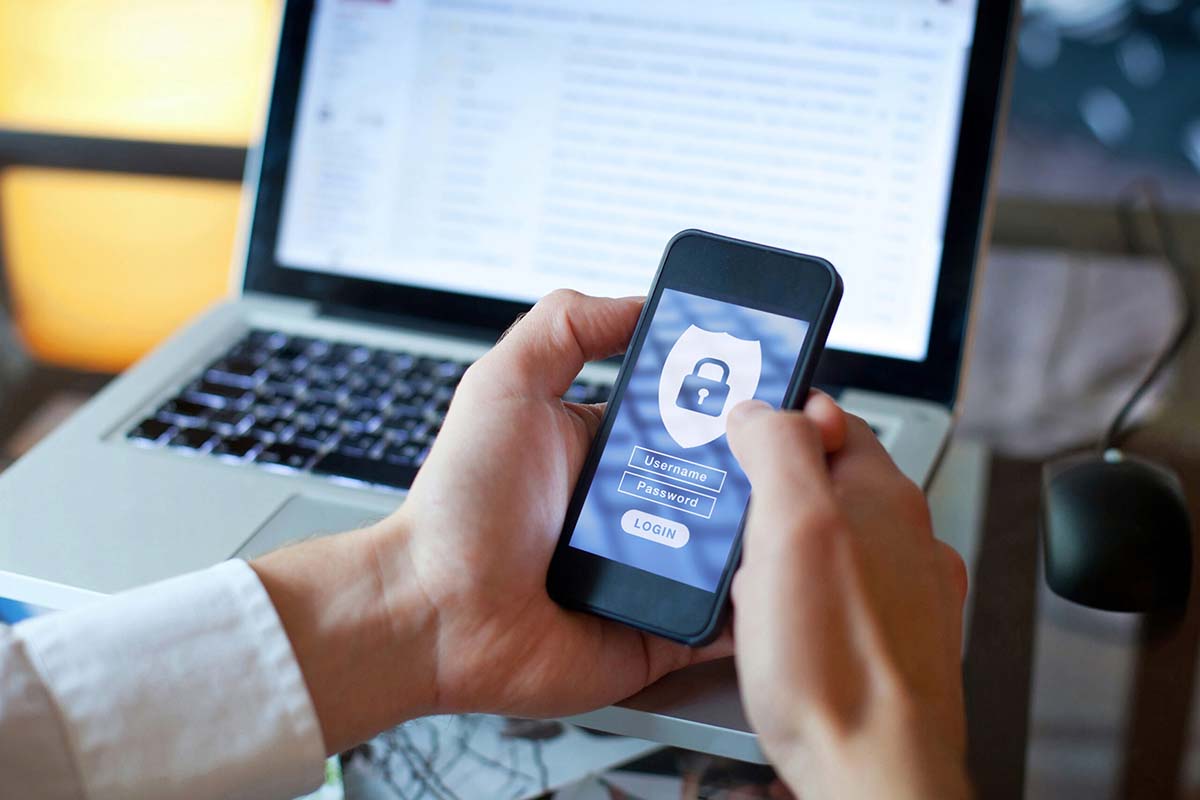In today’s digital age, information is at our fingertips. We can ask Alexa for the weather report while we make our morning coffee, check our bank account balance in line at the grocery store, or get directions to the closest Starbucks from an app on our phone.
Easy access to information helps our days run smoother and frees up our time, so we can focus on the things that really matter. Instead of driving to the bank to cash a check, we’re free to use that time as we please – whether it’s pursuing a personal hobby or taking the kids to the playground.
Of course, convenience often comes at a cost – and wherever we enjoy quick and easy access to information, there lies an opportunity for others to gain access to it, too. And while weather reports and Starbucks locations are common knowledge, our personal data is – and should remain – both precious and private.
Fortunately, a top-tier service provider will always work to protect your most sensitive data by employing a multi-layered approach for the strongest payroll security.
Why We Use Multi-Layered Security
Think of your cyber security like the locks on your front door. One lock might keep out some intruders, but multiple locks provide much better protection. Similarly, using several security measures ensures that if one layer is breached, others will still protect your data.
Our multi-layered approach to cyber security includes:
Traffic and Intrusion Monitoring
What It Does: Continuously analyzes network traffic to detect unusual patterns that might indicate a cyber-attack.
Why It Matters: Acts as the first line of defense, identifying and mitigating threats – before they cause damage.
Managed Security Services
What They Are: Outsourcing security management to experts who provide continuous monitoring, threat detection, and incident response.
Why They Matter: Ensures access to the latest security technologies and expertise, especially beneficial for smaller businesses.
Best Practices for Cyber Security
What They Include: Regularly updating security protocols, educating employees about cyber threats, and conducting security assessments.
Why They Matter: Staying informed and proactive helps maintain a strong defense against cyber-attacks.
Next-Generation Monitoring
What It Uses: Advanced technologies like artificial intelligence and machine learning to enhance threat detection and response.
Why It Matters: Quickly and accurately identifies potential threats, keeping you ahead of emerging dangers.
A Proactive Approach to Payroll Security
At Primepoint, we believe in and rely on advanced, multi-layered cyber security measures to keep your data safe. We help you stay secure, stay informed, and protect your sensitive data with a comprehensive security strategy.
However, it is still important for our users to protect their information as best they can. Here are some essential password security tips to help you stay safe and secure your online accounts:
Create Strong Passwords
Length and Complexity: Use at least 12 characters, including a mix of uppercase and lowercase letters, numbers, and special symbols.
Avoid Common Words: Steer clear of easily guessable words and number sequences, like “123456” or your name.
Unique Passwords: Use different passwords for different accounts to prevent a single breach from compromising multiple accounts.
Use a Password Manager
Convenience and Security: Password managers generate and store complex passwords, so you don’t have to remember them all.
Auto-Fill: Auto-fill will automatically fill in your login details, making it easier and faster to log in securely.
Enable Multi-Factor Authentication (MFA)
An Extra Layer of Security: MFA requires you to provide two or more verification factors to gain access to an account, significantly reducing the risk of unauthorized access.
Types of MFA: Common methods include SMS codes, authenticator apps, and biometric verification (like fingerprint or facial recognition).
Use Your Cell Phone for MFA
If your email is compromised, having MFA linked to your cell phone adds an extra layer of protection. Even if someone gained access to your email, they would still need your phone to complete the login process.
Authenticator Apps: Apps like Google Authenticator or Authy are more secure than SMS codes, as they are less susceptible to SIM-swapping attacks.
Regularly Update Your Passwords
Routine Changes: Change your passwords periodically, especially for sensitive accounts like banking or email.
Monitor for Breaches: There are a multitude of services you can use to check if your accounts have been involved in any data breaches. If you’ve found your accounts have been breached, update your passwords immediately.
Be Wary of Phishing Attacks
Suspicious Emails and Links: Don’t click on links or download attachments from unknown or suspicious emails.
Verify Requests: Always verify the authenticity of requests for personal information, even if they appear to come from legitimate sources.
Keeping Your Data Secure – Together
By following these tips and staying vigilant, you can significantly enhance your online security and protect your personal information from cyber threats. Remember, a little effort in securing your passwords today can save you a lot of trouble in the future!
